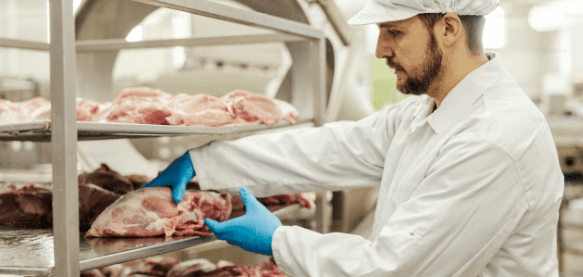Something quite exciting is abuzz in Leeds: a new project rocking the food world! A brand-new innovation center has just been opened at the University of Leeds, all for the creation of delicious, earth-friendly alternatives to meat. This centre, going by the name National Alternative Protein Innovation Centre, is not called that for fun; it is a big deal, with its price tag being £38 million!

So, why all the fuss? Well, the quest has begun by the researchers of this center: to make the food system better for the planet and for us. How? Finding new ways to provide proteins without using meats or animal products like eggs. This is all in pursuit of options that are easier on the environment and help improve food security.
The scoop is this: it is not just a local affair. There are big names on board alongside Leeds: the University of Sheffield, Imperial College London, and the James Hutton Institute, renowned for their research into climate and farming, all pitch in. Together, they may just do something big.
This is super important for our planet, reduces our dependency on animal farming,” declares project lead Anwesha Sarkar. “Our long-term vision is to make alternative proteins mainstream for a sustainable planet,” she explains. Translation: She wants to make meatless options so common, they’re just part of everyday life.
certainly ambitious it is. the center wants to be a world leader in innovation and knowledge to put the uk at the forefront of taking action to combat climate change and boost healthy eating, too. its not about how good the food tastes, only but also doing what’s in the best interest for the planet.
Well, what are these “alternative proteins” that are on everybody’s lips? In reality, they come from several sources, with some being cereal plants, nuts, mushrooms, and lab meat. These will help us decrease the demand for animal farming and will be good for the environment.
But here’s the kicker: some are still leery about these alternatives. What do they taste like? How much will they cost? Are they really healthy, and safe to eat? Beyond that, there are also concerns about how such a product would affect the nation’s farmers who raise animals for meat.

These, according to Professor Sanwar, another expert involved in the project, form part of the “obstacles” that make the introduction of more people to alternative proteins difficult. Despite such misgivings, however, they believe that a transition like this from animal meat can also have a boost on the economy as it opens up new employment opportunities, too. It is not just about eating different food; it is also about creating a healthier planet and new chances for people.
Such challenges will be attended to by the Center, which shall bring together 30 researchers from the different institutions. They will be engaged in providing solutions to such challenges and making alternative proteins more attractive and accessible to all.
So, what is the big picture here? National Alternative Protein Innovation Centre will be leading the way in finding new, sustainable food options, thus hopefully bringing a great effect on both the environment and public health. They don’t just make food; they help shape the future of what we eat and how we take care of our planet.

In all, a state-of-the-art center for meat-free alternatives that are good for people and the planet has now been set up in Leeds, supported by top universities and research institutes and a committed team of researchers-this project is going to make quite a splash. It’s all about making sure our food choices today are making the world a better place tomorrow. And who knows? Next time you take a bite, it might just be one of these fantastic meatless options that help keep Mother Earth healthy and happy!


